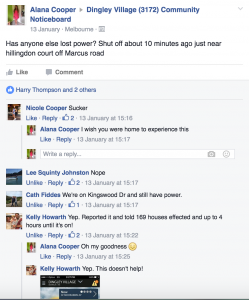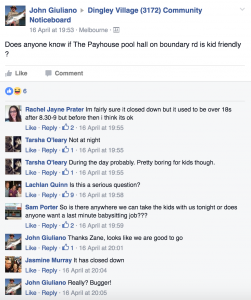‘Once Upon a Term Paper’- by Amateurs Online
Reflection
Throughout the duration of this course, the concept of an extension of hypertext has appeared often in relation to how users of digital platforms interact with a wide variety of media. ‘Hypermedia’, as the non-linear medium inclusive of video, images, audio, plain text, and hyperlinks, enhances the message being communicated to the view as a form of broad electronic literature. In Network Literacy: The New Path to Knowledge (Miles, 2007), it is contended that the ‘containers’ in which knowledge is conveyed in has changed in the movement into the 21st century, in that mediums such as blogs and visual interpretations of information has overtaken traditional mediums such as tactile books. The extension of this change can be seen in the use of hyperlinks, becoming a source of further learning and spread of information.
Douglass states that “it is hardly likely that digital media like hypertext are going to supersede books” (Douglass 1999). Even with the rise of new digital mediums such as more powerful video games and the internet expanding, the book continues to have its own place. He also states that the advancement of books help to continue their popularity. This continues to be evident as we now have the new ways of consuming books through ebooks and audio books with services such as Audible and the Kindle.
Hypertext reminds me a lot of modern video games. In the past, video games either had no narrative, their narratives were linear or they gave the illusion that they were non-linear. This is what inspired us with our interactive story. There are games, some examples include The Walking Dead, Tales from the Borderlands, and Stanley’s Parable’ that have multiple endings and each person’s gameplay can be different from another. Our story is created on flash. Visually it is not amazing which we understand will fail when trying to grab the attention of the audience. However the technical side works and allows flexibility. If given more time and resources, our story would have been much more fleshed out and allow the reader to completely dictate some areas of the story such as character names. Currently, our hypertext story contains different outcomes and each play through can be different depending on the number of times a reader has read the story. Currently there are only four outcomes. If we were able to add sections where the audience can completely change a part of the story, then each time a new entry is made, it is a whole new story even if it is a slight adjustment. Bernstein describes hypertexts as having “embedded and irregular links suggest the wildness of nature, where thumb tabs, lists, and menus all suggest systematic order.” (Herzogenrath 2012). Unfortunately our story does not contain as much interaction as this description of hypertext. Our goal was not to make it as sophisticated as the stories on The Walking Dead and Stanley’s parable. However we believe that with more technical knowledge, our hypertext can be further expanded on.
Douglass states that hypertext “is a primitive example of a highly refined technology” (Douglass 1999). With modern technology, this may change soon with more authors allowing the audience to add in their stories therefore expanding the narrative further than the original author can. This can be seen in sandbox games such as Fallout 4 and Minecraft where users often add in their own stories.





Recent Comments